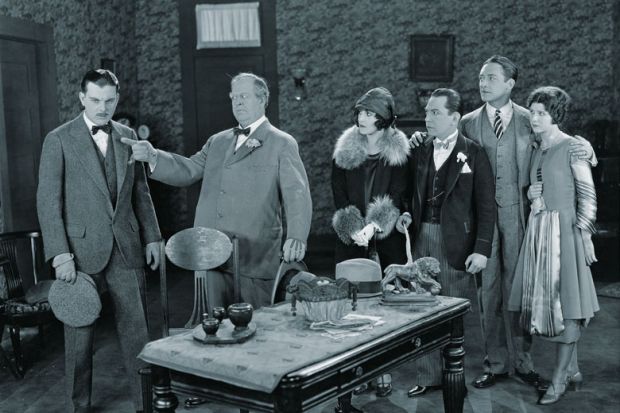The president of Tufts University has welcomed the rise in students “calling people out” over offensive comments, claiming that educating others about discrimination and marginalisation is the “right thing to do”.
Anthony Monaco, who has led the private institution since 2011, said that students are now “more willing” to say when they “feel uncomfortable, or discriminated against or marginalised” and to point out microaggressions, a term that refers to comments that reveal conscious or unconscious bias or policies whose effects may be unintentionally discriminatory.
He said that this was an “important” development because comments that may have been “the norm” for students in high school or where they grew up “should not be the norm on a campus with people from many different countries and backgrounds”.
In an interview with Times Higher Education, he said: “This generation is not going to sit back and let it happen.
“It is a very diverse community in academia. For some of our students, it is probably one of the most diverse settings they’re going to reside in. Calling people out on those types of microaggressions is fine. I don’t see why they should let it go.”
He added: “Pointing that out and educating people about it is the right thing to do.”
Commenting on the debate around freedom of speech and safe spaces on campus, Professor Monaco said that he did not think the discussion has been “exaggerated” by the media but some articles have “conflated issues of free speech with safe spaces and trigger warnings”.
He argued that universities should be environments where “controversial views” are expressed and students can ask “a difficult question”, but students should not try to “block or disrupt [a] speech”.
Alongside this, he added that he is “sympathetic to the call for trigger warnings, especially for those who have experienced violence or sexual misconduct in the past, and who should know that they’re going to read something that could trigger a negative reaction”.
He added that if there is going to be a discussion about a sensitive topic, such as sexual misconduct, universities need to create a safe space during and after the event, where “those who…are feeling uncomfortable because of the graphic nature of the stories can talk to counsellors or get support”.
Professor Monaco, who spent four years as pro vice-chancellor for planning and resources at the University of Oxford before leading the US institution, said that one of the main differences between higher education in the US and the UK was the approach to enrolling students.
He said that US universities try to “craft the class” by looking to recruit students from a “range of different backgrounds and experiences”, taking into consideration factors including race, ethnicity, income, demographics, type of school and interests.
In contrast, he said, “in Britain the meritocracy of getting into university is based mostly on your A-level grades” and UK universities “focus more on state school versus private school” when looking to diversify their student intake.
“Yes, that’s important, but which state schools? If they’re all from the best-resourced state schools, then are you really providing an opportunity to those who may not have had the educational environment to achieve the same level of attainment?” he asked.
“In the US, it’s a much more holistic approach. Someone who may have come from a high school that wasn’t as academically challenging, but who still shows great promise – being at the top of the class or doing well in academic teams or [being] involved in leadership positions in co-curricular activities – should have just as good a shot of getting into a top-ranked university as one who went to a private prep[aratory] school, who had all the resources and all the advanced placement courses.” Advanced placement courses are college-level classes at high schools, which universities use to grant students credit points.
He said that Tufts’ Center for the Enhancement of Learning and Teaching runs workshops where faculty “learn about how best to teach to a diverse classroom”, so that the university does not just look at the “compositional diversity of students” but ensures that it is “supporting the environment for inclusion on campus”.
“This minimises mistakes such as asking a student from a marginalised group to speak on behalf of their entire group,” he said.
“I think that’s a classic example of how faculty may get it wrong in a diverse classroom.”
POSTSCRIPT:
Print headline: Tufts head: students right to challenge offensive remarks
Register to continue
Why register?
- Registration is free and only takes a moment
- Once registered, you can read 3 articles a month
- Sign up for our newsletter
Subscribe
Or subscribe for unlimited access to:
- Unlimited access to news, views, insights & reviews
- Digital editions
- Digital access to THE’s university and college rankings analysis
Already registered or a current subscriber? Login







